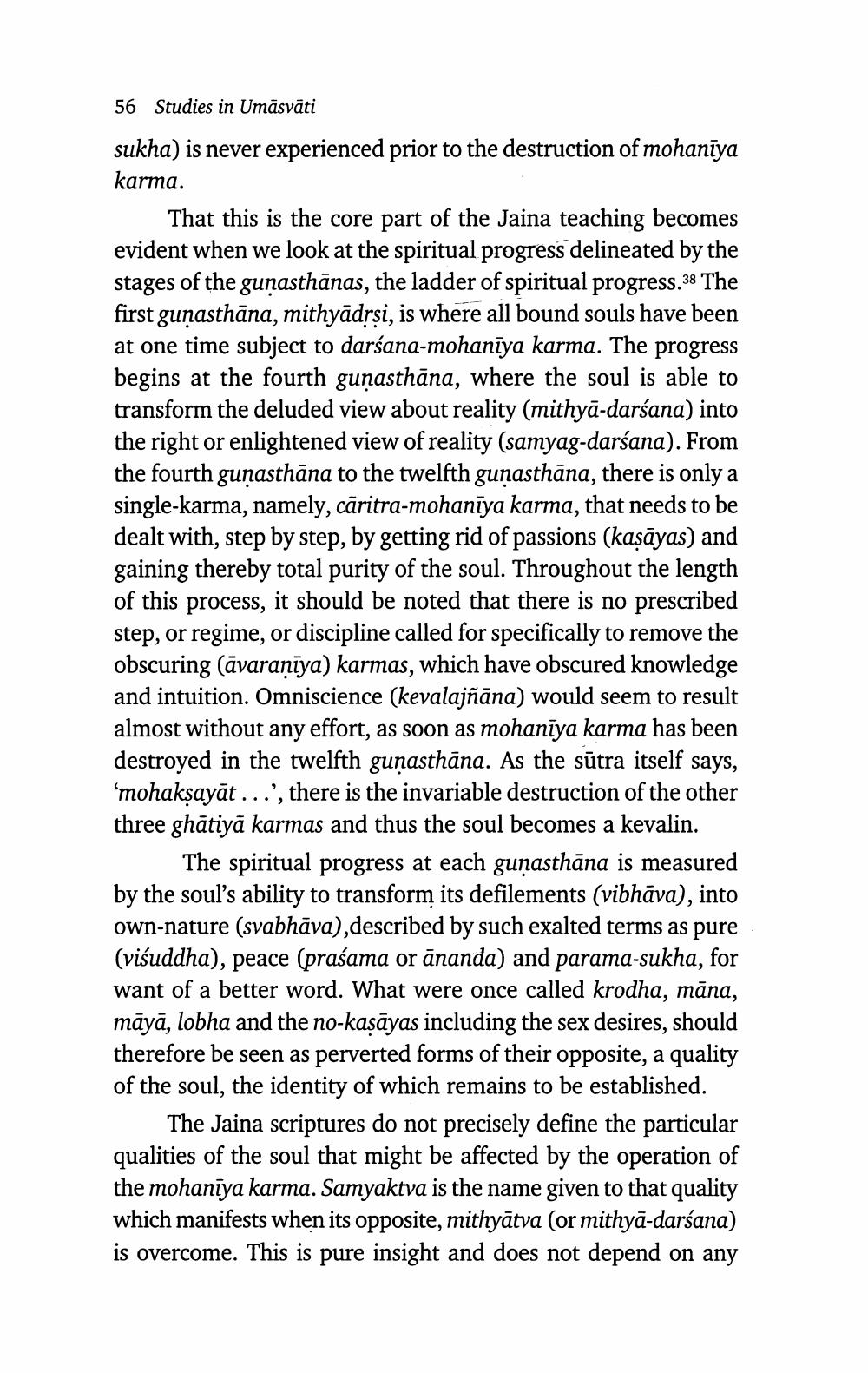________________
56 Studies in Umāsvāti sukha) is never experienced prior to the destruction of mohanīya karma.
That this is the core part of the Jaina teaching becomes evident when we look at the spiritual progress delineated by the stages of the gunasthānas, the ladder of spiritual progress.38 The first gunasthāna, mithyādrsi, is where all bound souls have been at one time subject to darśana-mohanīya karma. The progress begins at the fourth gunasthāna, where the soul is able to transform the deluded view about reality (mithyā-darśana) into the right or enlightened view of reality (samyag-darśana). From the fourth gunasthāna to the twelfth gunasthāna, there is only a single-karma, namely, cāritra-mohanīya karma, that needs to be dealt with, step by step, by getting rid of passions (kasāyas) and gaining thereby total purity of the soul. Throughout the length of this process, it should be noted that there is no prescribed step, or regime, or discipline called for specifically to remove the obscuring (āvaranīya) karmas, which have obscured knowledge and intuition. Omniscience (kevalajñāna) would seem to result almost without any effort, as soon as mohanīya karma has been destroyed in the twelfth gunasthāna. As the sūtra itself says, ‘mohaksayāt ...', there is the invariable destruction of the other three ghātiyā karmas and thus the soul becomes a kevalin.
The spiritual progress at each gunasthāna is measured by the soul's ability to transform its defilements (vibhāva), into own-nature (svabhāva), described by such exalted terms as pure (viśuddha), peace (praśama or ānanda) and parama-sukha, for want of a better word. What were once called krodha, māna, māyā, lobha and the no-kaşāyas including the sex desires, should therefore be seen as perverted forms of their opposite, a quality of the soul, the identity of which remains to be established.
The Jaina scriptures do not precisely define the particular qualities of the soul that might be affected by the operation of the mohanīya karma. Samyaktva is the name given to that quality which manifests when its opposite, mithyātva (or mithyā-darśana) is overcome. This is pure insight and does not depend on any




